The Boy Scouts In Russia - [9]
"Well, you can belittle it as much as you like, but you certainly saved me from an awfully nasty situation. And you didn't know who I was, either!"
"No, I didn't, of course. But it makes me feel all the better to find out it was you, Fred. Still you know we're not out of the woods yet."
"We're all right here, aren't we?"
"I don't know. I think the Russians will be in East Prussia, and well in, before very long. If that happens and the German army is pushed back of this line, these people will be entirely out of control, except if Russian troops happen to come to this particular spot-and there's no especial reason why they should."
"You mean they might attack the house?"
"They might do anything, especially if the war seems to be going against them. They're good enough people, as a rule, but in times like these there's no telling what will happen."
"I hadn't thought of that. But-yes, you're right, of course. What do you think we'd better do, Boris?"
"There's nothing to be done at once. We've got to wait a little while, and let the situation develop. If we tried to get away now, it would be very risky indeed, I think. You see, between us and the Russian border there are a lot of German troops. And, even if you went back now toward Koenigsberg and Berlin, I'm afraid you'd have a hard time. You see, you haven't any passport. And you're partly Russian. Then you've been here, and they'd know that. I'm afraid you'd stand a good chance of being locked up. Tell me just what happened at Virballen."
Fred told him all that he could remember, and Boris frowned.
"Ernst will make a report, you see," he said. "I'm afraid they'll be looking for you. It makes it look as if you were in a bad hole."
"How do you mean? There's nothing in what happened there to interest Germany, is there?"
"If things had been normal that night, you'd have found out what there was, I can tell you! You see the Russian and the German secret police work together very well. It's all right when they're looking for nihilists and violent revolutionaries-the sort of people who would think it a great thing to assassinate either the Kaiser or the Czar. But the trouble is that if a big man in either Germany or Russia has a grudge against someone, he can use that whole secret police machinery against him. That's what Mikail Suvaroff was doing to you."
"But the Germans?"
"He would have seen to it, I suppose, that the secret police on our side told the Germans here some cock and bull story-enough to induce them to make it unpleasant for you. That was arranged in advance probably. Right there on the border, with war starting, those fellows lost their importance. The soldiers, like Ernst, were in full command. But they'll be as busy and as active as ever a little way behind the fighting line, looking for spies. They'll remember what the Russians had to say about you, and they'll decide that you're a suspicious character, and lock you up in some fortress till the war's over!"
"Gee! That's a nice prospect! Say, Boris, what am I to do? If I go to Berlin, I'll be arrested! If I go back to Russia, my uncle will probably have me boiled in oil or something! If I stay here, your peasant friends down below will lynch me! I'm beginning to think I'm not popular around here!"
Boris laughed, but his eyes were grave.
"It's a ridiculous situation," he said. "I don't really know what to say. I don't believe you need to fear Mikail very much. He has a good deal to think of by this time, because, now that the war has come, he won't have time for intrigue. He's a first-class soldier. He made a splendid record in the war with Japan-and not many of our generals did, you know. But I tell you what I think we'd better do. Wait here until we hear from my father. He will know. And when he learns that you are here, he will be able to protect you in some fashion."
"But how are you going to hear from him here?"
"That's a secret-yet! But there's a way, never fear. A way that the Germans don't suspect, and won't be able to interfere with. Tell me, Fred. If it is safe for you to go back into Russia, will you stand by me? Or would you rather take your chance of going home through Germany? I'm a Boy Scout, and we have known for a long time some of the work we would have to do if war came."
"I'm with Russia, even if America stays out," said Fred, with instant decision. "Blood's thicker than water-you know the old saying. And I am half a Russian. If there's any way that I can help, you can count me in. I'm a Boy Scout, too, when it comes to that. I didn't know there were any in Russia, though."
"There are. They're all over Europe now, you know. Well, we'll see. What's this?"
A servant had entered.
"There is a man who would see you, Boris Petrovitch," he said, using the familiar address of Russian servants. CHAPTER V
Boris jumped up.
"That is good!" he said. "I have been hoping he would come."
"You do not know who it is," said the servant. "Boris Petrovitch, do not see this man. He is a German. He looks to me like one of their spies."
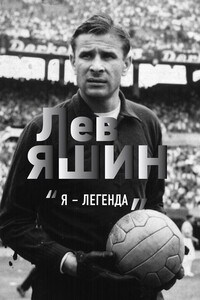
Лев Яшин был абсолютной величиной в мировом футболе. Он стал первым вратарем, получившим “Золотой мяч”, а в 1999 году ФИФА назвала его лучшим вратарём ХХ века. Однако он был не только прекрасным спортсменом, но и выдающейся личностью… Перед вами самая полная биография великого российского футболиста, из которой вы узнаете о его пути, больших победах и горьких разочарованиях.
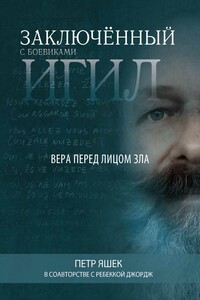
10 декабря 2015 года Петр Яшек прибыл в аэропорт столицы Судана города Хартум, чтобы вылететь домой, в Чешскую Республику. Там он был задержан суданской службой безопасности для допроса о его пребывании в стране и действиях, которые, в случае обнаружения, поставят под угрозу преследуемых христиан, с которыми он встречался. После задержания, во время продолжительных допросов, Петр понял, что в ближайшее время ему не вернуться к своей семье… Вместо этого Петру было предъявлено обвинение в многочисленных особо тяжких преступлениях, и он был заключён в тюрьму на 445 дней — только за то, что предоставил помощь христианам, преследуемым правительством Судана.
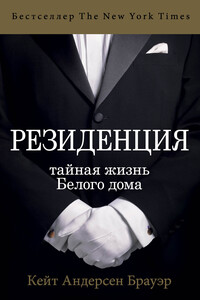
Повседневная жизнь первой семьи Соединенных Штатов для обычного человека остается тайной. Ее каждый день помогают хранить сотрудники Белого дома, которые всегда остаются в тени: дворецкие, горничные, швейцары, повара, флористы. Многие из них работают в резиденции поколениями. Они каждый день трудятся бок о бок с президентом – готовят ему завтрак, застилают постель и сопровождают от лифта к рабочему кабинету – и видят их такими, какие они есть на самом деле. Кейт Андерсен Брауэр взяла интервью у действующих и бывших сотрудников резиденции.
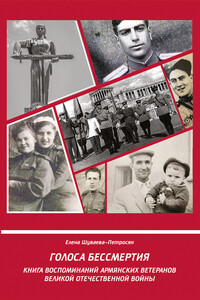
Книга «Голоса Бессмертия» Елены Шуваевой-Петросян – сборник очерков, основанных на воспоминаниях ветеранов Великой Отечественной войны из Армении. Она повествует об эпизодах героических биографий фронтовиков, которые, завершив ратный труд, продолжили служить Отечеству в мирное время. Это, по сути, воспоминания немногих доживших до 75-летнего юбилея Победы участников Великой Отечественной войны, призванные стать частью общей памяти о подвиге армянского народа, его вкладе в общее дело победы над фашизмом.
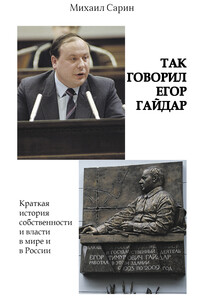
Миллионы россиян знают (или им кажется, что знают), что Егор Гайдар делал. Кто-то за это его благодарит, кто-то проклинает. Но мало кто знает, почему он делал именно так, что он при этом думал. А ведь все это изложено в его книгах. В своих работах он описал всю социально-экономическую историю человечества – от первобытных обитателей пещер до жителей современных мегаполисов. Особое место в его работах занимает, разумеется, Россия, ее путь на фоне мирового развития. И все, что он делал на практике.
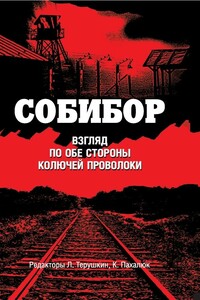
Нацистский лагерь уничтожения Собибор… Более 250 тыс. евреев уничтожены за 1,5 года… 14 октября 1943 г. здесь произошло единственное успешное восстание в лагерях смерти, которое возглавил советский командир Александр Печерский. Впервые публикуются последняя и наиболее полная версия его мемуаров, воспоминания многих соратников по борьбе и свидетельства «с другой стороны»: тех, кто принимал участие в убийстве невинных людей. Исследования российских и зарубежных авторов дают общий контекст, проливая свет на ряд малоизвестных страниц истории Холокоста.